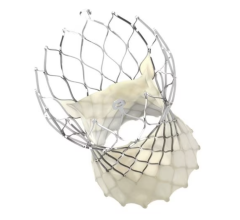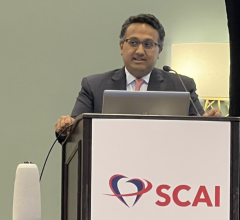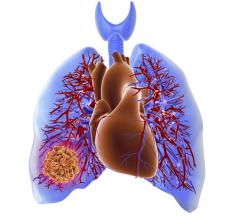
April 25, 2025 — The annual Society for Cardiovascular Angiography & Interventions (SCAI) meeting, SCAI 2025 Scientific Sessions, will kick off May 1, 2025, at the Walter E. Washington Convention Center in Washington, D.C. Nearly 2,000 scientists, researchers, innovators, and clinicians are expected to attend to discuss advances in the field of interventional cardiology and endovascular medicine.
This year's conference features more than 500 faculty, 700 posters, 86 oral abstracts and more than 30 live cases assembling specialists in the field to analyze and discuss the latest in expertise, clinical data, and standard practice.
“This year’s SCAI Scientific Sessions will be a dynamic, immersive experience that reflects the full breadth and future of interventional cardiology. We’ll explore how artificial intelligence and machine learning are being leveraged to improve efficiency and outcomes, highlight advances in structural heart interventions like TAVR, and address some of the most pressing challenges in our field,” said Binita Shah, MD, FSCAI, Program Chair for the 2025 SCAI Scientific Sessions. “In addition to state-of-the-art science, we’re also focusing on the well-being of the cardiovascular team—through dedicated programming on mental and physical health, radiation safety, and cath lab ergonomics. With hands-on learning labs, live cases, and first looks at the latest guidelines, the meeting is designed to equip attendees with both the technical insights and leadership tools to advance patient care and shape the future of our specialty.”
Key themes to be discussed at the meeting include:
- New Research: Percutaneous coronary intervention (PCI) is a non-surgical procedure intended to open narrowed or blocked sections of coronary arteries to improve blood flow to the heart. Almost one million PCIs are performed annually in the United States, and two diagnostic tests, Quantitative Flow Ratio (QFR) and angiography, are used to assess the severity of a blockage. New data from the FAVOR III trial compares these two tests to determine the most successful technique for physiology-guided revascularization:
- Late-breaking oral presentation: Clinical, angiographic, and procedural features of patients likely to have MACE despite online QFR-guided PCI: Insights from FAVOR III China trial
- Date and Time: Friday, May 2 at 11:12-11:20 AM ET
- Late-breaking oral presentation: The Look Inside in the Benefit of Physiology-Guided Revascularization: From Diagnostic Value to Prognostic Implications of Quantitative Flow Ratio (QFR)
- Date and Time: Friday, May 2 at 11:25-11:33 AM ET
- Late-breaking oral presentation: Clinical, angiographic, and procedural features of patients likely to have MACE despite online QFR-guided PCI: Insights from FAVOR III China trial
- Occupational Safety: While healthcare providers’ purpose is to care for and treat patients, the work can leave them at risk for health consequences of their own. Cardiac catheterization operators often wear lead protection to protect themselves from radiation; however, back pain and injuries. SCAI Scientific Sessions will release new data regarding lead-less and reduced lead solutions to prevent healthcare workers’ back pain and injury:
- Late-breaking oral presentation: Orthopedic Risks to Cardiac Catheterization Operators wearing traditional lead protection versus using novel lead-less solutions: Insights from the Prospective ERGO-CATH Study
- Date and Time: Thursday, May 1 at 3:30-4:15 PM ET and Friday, May 2 at 11:32-11:40 AM ET
- Newsworthy abstract: Sex and Operator Role based Differences in Ergonomic Risks to Catheterization Laboratory Operators: Insights from the Prospective ERGO-CATH Study
- Date and Time: Friday, May 2 at 1:39-1:47 PM ET
- Late-breaking oral presentation: Orthopedic Risks to Cardiac Catheterization Operators wearing traditional lead protection versus using novel lead-less solutions: Insights from the Prospective ERGO-CATH Study
- Transcatheter Aortic Valve Replacement (TAVR): TAVR is a minimally invasive procedure that replaces a narrowed, damaged aortic valve with an artificial valve. This approach can help reduce symptoms of aortic valve stenosis like chest pain, shortness of breath, and fatigue. In 2023, over 100,500 commercial TAVR procedures were completed in the United States. This year’s meeting will feature the following TAVR presentations:
- Late-breaking oral presentation: Antiplatelet Therapy and All-cause Mortality after Transcatheter Aortic Valve Replacement – Insights from the TRITAVI Registry
- Date and Time: Friday, May 2 at 10:52-11:00 AM ET
- Late-breaking oral presentation: Impact of Age on Procedural Timing for Asymptomatic Severe Aortic Stenosis: Results from the Early TAVR Trial
- Date and Time: Thursday, May 1 at 11:36-11:44 AM ET
- Late-breaking oral presentation: Incidence and Gender-Based Comparison of Prosthesis-Patient Mismatch (PPM) in patients undergoing transcatheter aortic valve implantation (TAVI)
- Date and Time: Friday, May 2 at 11:02-11:10 AM ET
- Late-breaking oral presentation: Antiplatelet Therapy and All-cause Mortality after Transcatheter Aortic Valve Replacement – Insights from the TRITAVI Registry
“With a record number of abstract submissions, expanded international participation, and our most comprehensive program to date, this year’s Scientific Sessions truly reflect the momentum of our field. Attendees will find cutting-edge data, practical skill-building, and collaborative forums designed to advance both science and practice. Whether you’re focused on clinical care, innovation, or training the next generation, there’s something here to support your clinical, research, and career goals,” said SCAI President James B. Hermiller, MD, MSCAI.
For more information, visit SCAI 2025 Scientific Sessions | SCAI.


 May 05, 2025
May 05, 2025 









